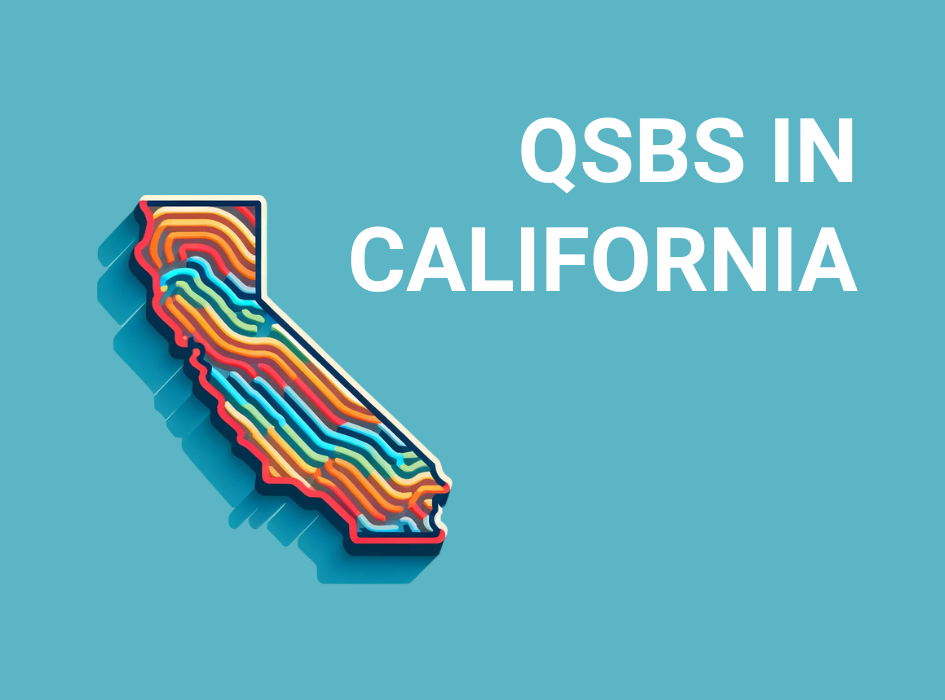Unraveling the California QSBS Maze for California-based Founders – Areas to Optimize
Navigating the intricacies of capital gains and Section 1202 QSBS is a process that can determine whether a startup exit becomes a financial tax-optimized windfall, or whether you miss the tax benefits and pay a bunch of federal tax income tax and state tax.
The Qualified Small Business Stock (QSBS) exclusion emerges as a ray of hope, albeit accompanied by intricate nuances and complexities. For founders based in California, understanding California QSBS could mean the difference between substantial tax savings and a colossal oversight. Let’s shine a light on what California QSBS means for you.
The Bright Spot: A Refresher on QSBS Tax Benefits
Qualified Small Business Stock (QSBS) refers to a tax provision under Internal Revenue Code Section 1202 intended to promote investment in small businesses, namely a c corporation. If you’re a founder, this can translate to a hefty tax break. As an original or early investor in certain small businesses, you have the chance to potentially exclude all or part of your federal income tax gain from your gross income upon your exit, subject to specific limits and timelines, such as a required holding period of five years. Curious if you qualify for QSBS? Discover more about QSBS eligibility here.
Why is this a big deal? Because if you qualify for the Section 1202 exclusion, you may be looking at an effective tax rate as low as 0% on the excluded gain. This is a significant tax break for federal income tax purposes and is free from alternative minimum tax, and the 3.8% net investment income tax. Rather significant, no? It becomes even more so given the heavy tax burden that typically accompanies capital gains tax both federal and state. More on Section 1202 QSBS on the Internal Revenue Service website here.
The Taxing Thickets: California’s Quandary
Here’s where it gets interesting, or perhaps frustrating – a bit of both. California, the heart of the tech ecosystem, previously opened the QSBS tax break but slammed the door shut in 2013. This means that while founders in other states like New York celebrate their domestic c corporation QSBS exclusions on a state level, those subject to California QSBS must pay state capital gain taxes.
Because of the significant differences in taxes at the state level, especially for California QSBS, many consider relocating to tax-favorable states to take advantage of this. Living in a tax-advantageous state or jurisdiction could significantly enhance your financial growth by minimizing or even eliminating your state tax obligations altogether. Here is an article that Peyton Carr, one of our co-founders, wrote for TechCrunch for those who are considering moving states for tax purposes.
The Tax Journey Beyond: State-Level Tax Treatments
It’s not just California QSBS that founders must consider; every state has its own policy regarding QSBS gains on state income taxes. Some states like Pennsylvania and New Jersey offer no additional incentives for QSBS as well, whereas states like Nevada, Wyoming, Texas, or Florida with no individual state income tax for capital gains provide a very different landscape.
New York’s 100% exclusion mirrors the federal treatment, a beacon of an environment for startups and investors. Understanding state-level implications is vital for any founder, potentially saving or costing millions over time.
Expert Guidance: Navigating the Qualified Small Business Stock Mission
Understanding whether California QSBS aligns with federal tax code treatment is just the tip of the iceberg in this intricate area. There are numerous strategies available for optimization. Given the diverse state tax policies and optimization opportunities, along with Keystone’s expertise in California QSBS Planning, our involvement in this process is crucial. A thorough review of state tax laws, comprehension of your unique situation, and leveraging our tax-saving strategies tailored to specific state nuances are vital steps in this process. Here is an article on some advanced exit and tax planning strategies for founders discussing opportunities California founders can consider to minimize California QSBS tax.
Reinforcing the Path: CA State Tax Optimization
The QSBS tax code journey, especially for California QSBS, is one of nuances and potential. As a founder, you have a unique opportunity to leverage the QSBS tax benefits and the Section 1202 capital gains exclusion for tax advantage. But what if we said the tax benefits don’t just end there? Through early and strategic planning, you could potentially leverage QSBS tax benefits multiple times over. QSBS stacking is yet another advanced tax strategy we discuss that could help you optimize capital gains and future estate tax obligations and strengthen asset protection. While the landscape may seem daunting, with the right understanding, planning, and expert personal services help, the QSBS exclusion can be a significant financial ally in your pre and post-exit endeavors.
FAQs
Does QSBS apply in California?
Answer: QSBS does not apply or, rather, does not conform to the federal QSBS rules or guidelines. What this means is that if you live in California, have QSBS, and have an exit, you will still be subject to CA state tax. In the past, California had some tax incentives for investing in qualified small business stock, but those no longer apply. However, there are strategies to minimize state level taxation, like relocating to a different state before an exit or establishing specific types of trusts.
Does California allow 1202 exclusion?
California does not allow the 1202 exclusion; however, it still applies at the Federal tax level for individuals with Qualified Small Business Stock (QSBS). For example, if you meet all the eligibility criteria, you can exclude gains on up to 100% of the federal tax, but California State Tax will still apply. Depending on individual circumstances, you might explore establishing specific trusts in tax-exempt states, or consider different strategies, such as moving states before selling your company.
Which states do not recognize QSBS?
The following states do not conform to the federal Qualified Small Business Stock (QSBS) exclusion under IRC Section 1202:
- Alabama
- California
- Mississippi
- New Jersey
- Pennsylvania
- Puerto Rico
Additionally, Hawaii and Massachusetts only partially conform to the QSBS tax exclusion.


